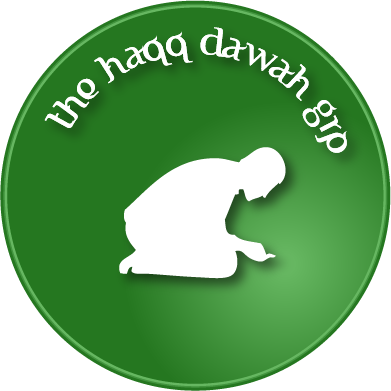Dawah Flag

Thursday, June 19, 2014
Ramadan Explained
Ramadan:
AsSalaam Alkuim
AsSalaam Alkuim
Ramadan is the ninth month of the Muslim calendar when all Muslims - with a few exceptions - have to fast during the hours of daylight. The first day of the fast is authorised by the Amir who has authenticated a sighting of the new moon. This is a very important moment when people often gather outside with great excitement. Each person hopes to be the first to see it. The lunar month can be 29 or 30 days long, so they look for the new moon on the 29th day of Sha'ban, which is the month before Ramadan. If on the first evening the Amir is not satisfied that the new moon has been seen, Ramadan will begin on the following evening. {Regretful to say that the excitement of this practice has been abandoned in modern times. We should try to adopt this method once more insh'Allah.}
Once everyone knows that the month of Ramadan has started, they begin preperations. Early in the morning, each family gets up before dawn to eat a meal {called suhur}. It is dark and sometimes it is very difficult to get up, so parents try to encourage the children so that they don't miss their suhur or breakfast. {This is normally a very exciting time for both kids and adults. The children particularly like the idea of getting up in the night to eat something, and to fast during the day.} After eating on the first morning, they then resolve on their intention to fast that month 'for the sake of Allah (swt)', and each day people similarly renew their intention to fast that day. From this moment their fast begins. They then perform their Fajr prayers.
During the day they must not eat, drink, have sexual relations or smoke. Even more important - they must try not to get angry or think bad thoughts, because this would also cancel out any good things they might recieve from Allah (swt) through fasting. Many people find that because they are fasting they lose their tempers more quickly. So one of the first things that the fast teaches is self-control and patience.
The moment to break fast arrives as soon as the sun sets. Those who are fasting gather togeths and usually break their fast with a date and a glass of water. Sometimes they might have other snacks as well. The meal that you break fast with is called iftar. {Whilst having iftar, one realises the value of food and drink which far exceeds the cost paid for it.}
After their Maghreb prayers, they sit down to eat a proper meal. The ritual of breaking the fast with dates is said to go back to the time when Prophet 'Isa - Jesus (as) was a baby, when he and his parents were fleeing to Egypt. On the journey they had nothing to eat. The first food that they were able to find was dates. So the baby 'Isa (as) broke his fast with dates. Later, the Prophet Muhammad (sallallahu alaihi wassalam) also broke his fast with dates and in this way it became a custom. When fasting it is very important to eat healthy food so that you will have strength to fast the next day. Sometimes people cook enormous meals and this can mean throwing food away if it is not all eaten. Food should never be wasted - especially during Ramadan. The Prophet (sallallahu alaihi wassalam) also advised that it is better never to eat too much. {According to a hadith, a third of your stomach is for food, a third for liquid, and a third so you can breathe easily.}
After their meal, many Muslims go to the Mosque to do the Tarawih prayers after the night prayers called 'Isha. Tarawih are special prayers which are done every night at the Mosque, only during Ramadan. Sometimes people do them at home. During the prayers, many people will try to complete the reading of the whole Qu'ran at least once in that month. For the 29 or 30 days of the fast, Muslims will repeat this routine each day.
A few people are excused from fasting. Children under the age of puberty - though many start fasting much younger {to participate in the excitement of Ramadan of their own free will ! Subhan'Allah!}. They usually start by fasting just half a day. As they grow older they fast for longer periods, until they are able to complete the whole month. Women who have their periods or who have just given birth do not fast. If they are pregnant or breast-feeding they do not have to fast if they fear for the baby's health. The sick, the old and the traveller, are also excused from fasting. In all cases when people are not able to fast, they have to fast the number of days they have missed, at some other time. If they are not able to do this because of bad health, for instance, they must feed a poor person for the same number of days. This is only if they can afford it.
AsSalaam Alkuim,
The Haqq Dawah Group
Subscribe to:
Posts (Atom)